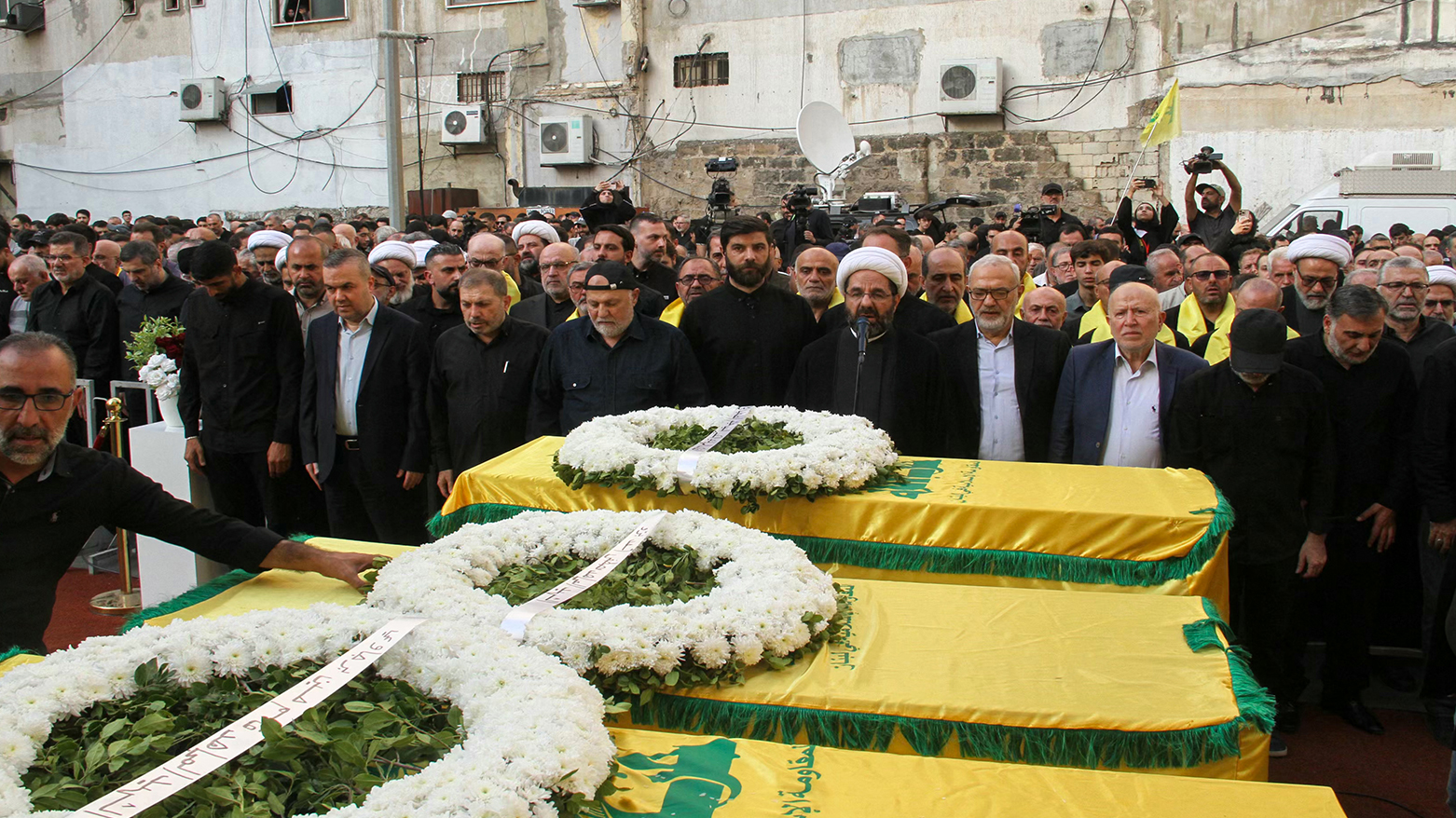Tehran Calls for Retaliation as Israel’s Beirut Strike Eliminates Hezbollah’s Top Commander
Israel says the strike was vital to enforcing the ceasefire and preventing Hezbollah from rebuilding its military power.

ERBIL (Kurdistan24) — Iran’s Islamic Revolutionary Guard Corps (IRGC) on Monday vowed that Hezbollah has an “unquestionable” right to retaliate for Israel’s killing of the group’s military chief, Haytham Ali Tabatabai, in a major escalation that has sent regional tensions sharply rising ahead of next week’s visit by Pope Leo XIV to Lebanon.
Israel’s precision strike on Beirut’s southern suburbs on Sunday marked the most significant blow to Hezbollah’s leadership since the November 2024 ceasefire, which had temporarily halted more than a year of cross-border hostilities.
Lebanese officials said the attack hit an apartment building in the Haret Hreik district, killing five people and injuring 28 others.
IRGC calls for “revenge”
In a statement, the IRGC—Hezbollah’s principal military and financial backer—condemned the killing of Tabatabai and called for retribution, saying the “right of the Axis of Resistance and Lebanese Hezbollah to avenge the blood of the brave fighters of Islam is unquestionable.”
Tehran described the strike as “cowardly” and accused Israel of attempting to undermine Lebanon’s stability.
Tabatabai, who had assumed the role of Hezbollah’s de facto military chief after the 2023–2024 conflict with Israel, was considered one of the group’s most strategically important commanders.
Israel accused him of overseeing Hezbollah’s efforts to rebuild its arsenal and restructure its forces in violation of the ceasefire terms, which require the group to withdraw north of the Litani River and dismantle its military infrastructure in the south.
A decisive moment for Hezbollah
Hezbollah held a mass funeral procession in Beirut on Monday for Tabatabai and other slain members. Hundreds of supporters filled the streets of the tightly packed southern suburbs, carrying portraits of Hezbollah leaders and Iran’s Supreme Leader Ayatollah Ali Khamenei, while chanting slogans against Israel and the United States.
Senior Hezbollah official Ali Damush told mourners that Israel’s strike aimed to force Hezbollah into “surrendering and submitting,” a goal he insisted “will never be achieved.”
He warned that Israel “should remain worried” about a potential response, while urging Lebanese authorities to resist “American dictates and Israeli conditions.”
A source familiar with Hezbollah’s internal discussions told AFP that the group is divided between figures pushing for immediate retaliation and others urging restraint to avoid a broader conflict.
The leadership, the source said, currently “leans toward the utmost forms of diplomacy.”
Observers keep affirming that the killing of Tabatabai is Hezbollah’s most severe loss since the ceasefire. Atlantic Council researcher Nicholas Blanford noted that while Hezbollah’s support base is demanding revenge, the group’s options are “very limited” given the risk of a massive Israeli response and Lebanon’s fragile political and economic conditions.
Hezbollah has been significantly strained since entering the conflict in support of Hamas in October 2023, suffering major battlefield losses while grappling with Lebanon’s deepening economic crisis and intensified international pressure.
Israel says strike was to enforce ceasefire
The Israeli military said it eliminated “terrorist” Haytham Ali Tabatabai, describing him as Hezbollah’s chief of general staff and a critical architect of the group’s post-war reconstruction.
Israeli Prime Minister Benjamin Netanyahu said the operation showed that Israel “will not allow Hezbollah to rebuild its power,” calling on the Lebanese government to enforce its obligation to disarm the Iran-backed faction.
Defense Minister Israel Katz warned that Israel would continue its “policy of maximum enforcement,” saying those who threaten Israel “will have their hand cut off.”
Lebanon’s army insists it is implementing its state-approved plan to disarm Hezbollah in the south before expanding operations nationwide, but Washington and Tel Aviv have accused Beirut of delaying the process.
The strike drew expressions of concern from France and the United Nations. UN spokesperson Stephane Dujarric reiterated that “civilians and civilian areas must not be targeted” and called for maximum restraint.
Lebanese Prime Minister Nawaf Salam condemned the attack, saying only “extending the authority of the state over all its territory” could stabilize the country. President Joseph Aoun also urged the international community to intervene to stop repeated Israeli strikes on Lebanese soil.
Sunday’s strike was Israel’s fifth attack on Beirut’s southern suburbs since the ceasefire and came less than a week before Pope Leo XIV’s scheduled visit—an event Lebanese officials had hoped would highlight national unity and encourage de-escalation.
As Beirut braces for potential retaliation and renewed confrontation, the targeted killing of Tabatabai is widely seen as an Israeli attempt to reinforce deterrence and prevent Hezbollah from reigniting a broader conflict—one that could once again draw the region into a dangerous and unpredictable spiral.